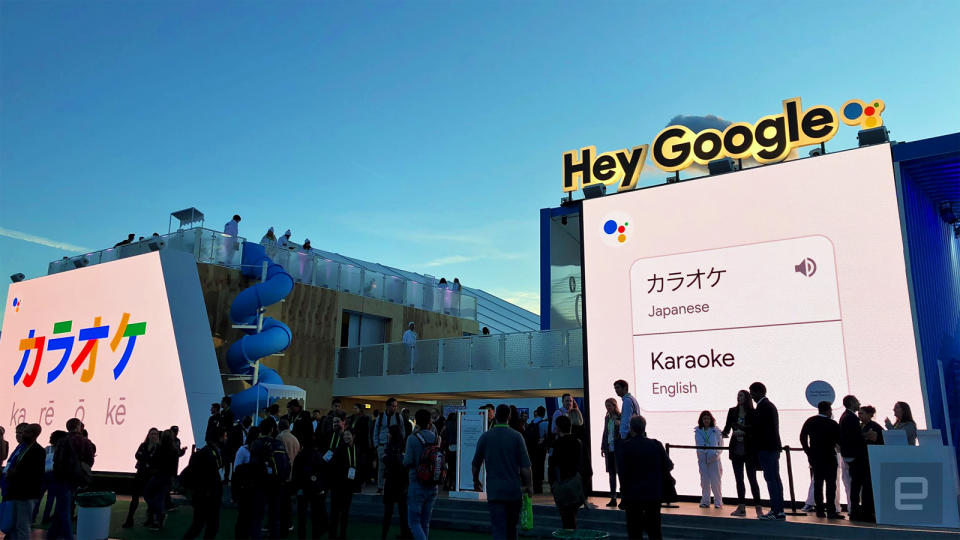Google won the voice assistant popularity contest at CES
Your move, Alexa.
CES 2018 kicked off with a major Google presence on the show's front doorstep. Nathan's already explained why the company may have decided to appear at the world's biggest tech show with such strength, but halfway through the show, I get the feeling that the gambit's paying off. Google Assistant is eroding the lead established by Amazon's Alexa, arguably the internet company's biggest voice assistant rival, and it's doing it with better devices, wider functionality... and free donuts for anyone at CES.
With Google bringing its Assistant to smart displays (not to mention more TVs), it's obviously chasing Amazon's own Echo Show assistant in a major way. It's also done it with arguably better products: Lenovo's 8- and 10-inch Smart Displays offer better-looking screens and more premium (read: less janky-looking) hardware than own Amazon's debut smart display.
Adding screens to a voice assistant helps to discriminate between what Alexa and Google Assistant are capable of, and Google really tried to capitalize on this during booth demos that ran through all the ways it can fold in Gmail, your Calendar and Google Maps into its assistant.
But I (and possibly you, Engadget reader) knew that. Google's CES 2018 booth isn't for a guy that's been working tech shows for over six years: it was to demonstrate exactly what's possible with voice assistants for people that didn't realize they probably already had one on their smartphone.
The huge Google stand was in the lot right outside the convention center, sharing space a few hundred yards away from Engadget's own trailer. This means anyone can get to it, and given how much it stood out from other exhibitors on the lot, it was an obvious draw for the public. Google had giant gumball machines offering free Google swag to all -- including Home mini smart speakers -- while more people lined up to tour the Google Assistant experience, a room filled with Google-powered gadgets, or just to simply claim a free donut ("20-minute wait"). We like free stuff.
Google Assistant's arrival on cars is slightly more evolutionary, it'll fold itself into Android Auto -- software that already had voice recognition. This will add smart home controls from the driver seat, as well as access to YouTube and more. It's a no-brainer, but for Google, it's an easy way to increase the ubiquity of its Assistant. Of course, Amazon is moving similarly: Toyota is the latest to announce that Alexa support was coming to its new car fleet. The likes of Ford and Hyundai have also stated similar intents. At least with Android Auto, there's, once again, a display to add visual answers to your verbal information requests.

Amazon isn't standing still: Alexa is coming to Windows PCs, which is great news for the retailer, but not for Cortana, Microsoft's own voice assistant. Across the rest of CES, Google seemed to go toe-to-toe with Amazon's voice assistant when it came to new smart devices. For every pair of Alexa-compatible smartglasses, there was a smart lock that had its hooks in Google's option.
White goods maker Whirlpool continues to hedge its bets and offer both voice assistants. At this point, that might be the wisest choice.
Additional photos: Nicole Lee




